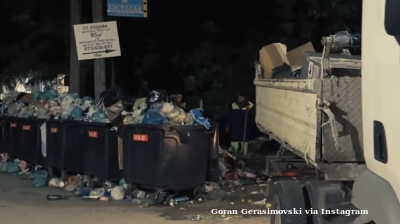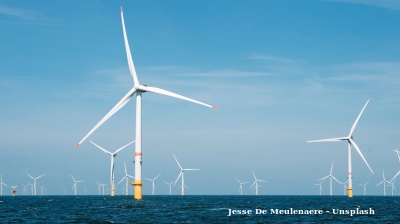The earth’s energy is out of balance and the world is starting to cook, says a new report. The authors include James Hansen, who testified to the US Congress on global heating as long ago as 1988.
More energy than ever before is coming into the planet (absorbed sunlight) than is going out (heat radiated to space), said the scientists.
The earth’s energy imbalance (EEI) has escalated in the past decade, they said. The imbalance so far in the 2020s is almost double the rate during the study’s calibration period, from mid-2005 to mid-2015.
In a study published in 2021, the EEI was found to have doubled in the 14 years from 2005 to 2019. The study was by scientists at NASA and the US National Oceanic and Atmospheric Administration.
Earth's climate is determined by a delicate balance between how much of the sun's radiation energy is absorbed in the atmosphere, and at the surface, and how much thermal infrared radiation the earth emits to space, says NASA.
A positive energy imbalance – which is what we have – means the earth system is gaining energy, causing the planet to heat up.
This is in addition to global climate change – also known as global warming – which is caused by emissions of CO2 and other greenhouse gases (GHGs).
EEI is the result of a decline in the cooling effect of human-made aerosols, according to indirect evidence, say Hansen et al.
In fact, the present El Niño is expected to create such extreme high temperatures that it is now “almost certain” that the 12-month running mean temperature will exceed 1.5°C above pre-industrial levels by May 2024 or earlier, said the scientists.
El Niño is a cyclical warming of the surface of the ocean in the central and eastern tropical Pacific Ocean.
According to the Paris Agreement, the signatories must pursue efforts not to reach an average temperature rise of 1.5°C compared with pre-industrial levels.
Aerosol emissions can come from, for example, sulphate emissions from ship fuel. Aerosol emissions are not measured by today’s satellites.
“Without such data we will be flying blind into a future fraught with dangers,” said the scientists. “At the very least, we owe young people the knowledge of what we are getting them into.”
bneGREEN

The Arctic and Antarctica record "off the charts" heat as polar warming accelerates
Parts of both the Arctic and Antarctic have experienced historically high temperatures in recent weeks, with weather stations in East Antarctica recording record-breaking warmth for the month of October, alarming climate scientists.

Giant glacier chunk breaks away in Tajikistan, mountain villages put on alert
Situation serves as reminder that climate crisis threatens to wreak havoc in Central Asian country.

Singapore’s green pivot – headline grabbing but still limited
Forays into offshore wind via regional cooperation with neighbours, and forward-looking bets on hydrogen and low-carbon fuels are making headlines, but the scale required to wean a heavily gas-dependent system off fossil fuels is still daunting.

North Macedonia's Skopje tackles mounting waste and rodent crisis
Locals say the problems in Skopje's Centar municipality worsened during the local election period when political campaigning took precedence over maintenance.



